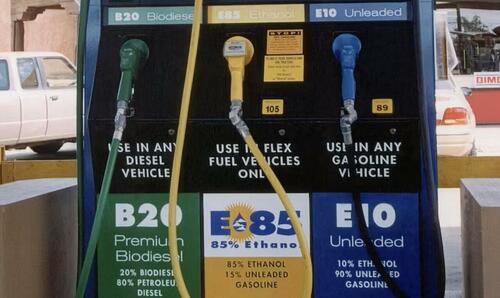
New EPA Proposal Would Restore About 50% Of Lost Biofuel Demand
The White House is reviewing an EPA proposal that would make large refiners cover about half or less of the 1.1 billion gallons of biofuels exempted last month for small refineries, according to three sources familiar with the matter, according to Reuters/Yahoo.
The plan, still under discussion, could leave roughly 550 million gallons of demand unmet, potentially boosting the supply of renewable fuel credits and pushing their price lower.
Farm-state lawmakers and biofuel producers have been pressing for full restoration of lost demand. The oil industry, meanwhile, has resisted, warning of higher compliance costs. The EPA’s approach is seen as a compromise to stabilize the credit market without overwhelming refiners.

„The EPA is in the process of evaluating a range of options that strike an appropriate balance between obligations, reallocation, and other factors that will deliver for farmers, consumers and American energy dominance,” a White House official told Reuters. The EPA declined to comment further.
Reuters reports that the Renewable Fuel Standard (RFS) requires refiners to blend billions of gallons of biofuel each year or buy credits, but small plants can seek waivers for financial hardship. In August, the EPA cleared a backlog of more than 170 such requests dating to 2016. It is only required to reallocate gallons exempted in 2023 and beyond, as earlier credits have expired.
The proposal under review would cover 2023 and later years, with percentages applied differently depending on the year, sources said. It is expected to be finalized before October 30, the deadline for setting 2026–2027 blending quotas.
The debate underscores the long-running clash between Big Oil and the farm lobby — two constituencies President Donald Trump has sought to keep on side. The stakes are high: the 2023 and 2024 waivers alone amounted to 1.4 billion credits, equal to 1.1 billion gallons, and more exemptions could follow as 2025 applications are reviewed.
Tyler Durden
Fri, 09/12/2025 – 23:00









